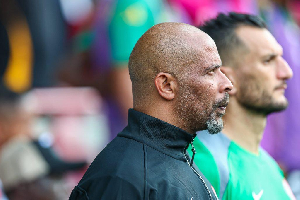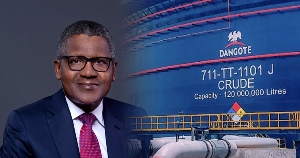Vice President, Senator Kashim Shettima, has said the current economic challenges will soon be over, urging Nigerians to react to the current realities “in a responsible and mature manner.”
He added that the consequences of our past are the stark realities we face today, such as the rising cost of living as well as pessimism over the government’s ability to turn the economy around for growth and development.
Shettima, who was represented by his Special Adviser on Political Matters, Dr. Hakeem Baba-Ahmed, stated this during the 29th pre-Ramadan lecture organised by the University of Lagos Muslim Alumni (UMA) with the theme, “Economic Reforms for Nigeria: Challenges and Prospects for the Future,” held at the main auditorium, University of Lagos recently.
Shettima noted that the forthcoming Ramadan would come with “severe” challenges for many Nigerians, adding that the current reforms might be challenging, but the government has no intention to punish Nigerians.
He said, “The leadership of President Tinubu recognizes that this Ramadan will come with severe challenges for most Nigerians. The road to where we are today was long and full of missed opportunities and tragic failures to build on our great potential.
“The consequences of our past are the stark realities we face today, such as rising cost of living and pessimism over our prospects to turn around our economy in the direction of growth and inclusive development.
“Yet, my brothers and sisters, we do not have the choice of continuing in the direction that brought us where we are today. We have to fix this country, and failure to do this is not an option. All the options we have are difficult and challenging, and they are, without a doubt, more telling on the poor. If there are easier and reliable alternatives to the policy choices we have adopted, we would have adopted them.
“Our administration does not plan to make the lives of Nigerians more difficult. Nor do we intend to deceive fellow citizens that the change in direction and the expected outcome can be achieved without pain or sacrifices.
“We are also acutely aware that ours is a set of related Nigerian problems, and the solutions we seek must be genuinely informed by a Nigerian context, not the experiences of others or the preferences of special foreign interests which are removed from consequences of mis-steps or errors of judgement.
“Fellow alumni, I appeal to you to help make space for our administration to achieve the goal of turning our nation around. As products of a distinguished institution, we have learnt that progress is only possible if it is informed by criticism and critical scrutiny.
“We expect that Nigerians should express their feelings over our circumstances in a responsible and mature manner. We are also a deeply religious people, and we believe in the powers of faith and prayers. Let us be reminded that Allah tests His servants with ease and hardship, and He asks that we pray to Him for relief from hardship, and discipline in times of abundance.
“I join you in praying that Allah will grant us the privilege of undertaking our Ramadan fast as prescribed by Him, and we shall receive the reward.”
Chairman of the occasion, Yusuf Ola-Olu Ali, represented by Deputy President of Muslim Ummah of Southwest Nigeria (MUSWEN) Alhaji Wale Sonaike, said any economic reform must be well thought out and diligently implemented, adding that Nigeria must transform from a consumption nation to a production nation.
We must all play our part — Prof Adekoya
Earlier in his welcome address, UMA President Prof. Khalid Adekoya, expressed hope that the hardship will recede and better times will come when policies being introduced begin to yield good fruits. Prof. Adekoya said this will materialise only if all stakeholders (government and the governed) play their part in line with global best practices in rejuvenating an ailing economy and, above all, if we imbibe the fear of Allah in the true sense of it.”
“However, we are obligated to take some practical steps as a nation. We must invest extensively and pragmatically especially in manufacturing and Agro-Allied industries. Manufacturing will promote local production, boost employment and reduce our dependence on imported goods. Agriculture will eliminate hunger and reduce crime and criminality.
“Government should also make concerted efforts to achieve fiscal and monetary policy consolidation to tackle inflation; strengthen our public services to improve efficiency and reduce corruption; improve the business environment to attract investment; fight insurgency and banditry to improve security nationwide,” Prof Adekoya said.
Nigeria must drive foreign investments, tame inflation — Niyi Yusuf
Chairman of the Nigerian Economic Summit Group (NESG), Mr. Niyi Yusuf, said the country must drive foreign direct investments (FDI), tame inflation and tackle the foreign exchange volatility to achieve $1 trillion economy in 2030.
He said the $1 trillion economy is achievable through three pathways which include export diversification and sophistication strategy; innovation and digital transformation strategy and sub-national integration strategy.
Yusuf said the current headline inflation at 29.9 percent and food inflation at over 35 per cent means the poor are getting poorer. According to him, the government must improve the tax to Gross Domestic Product (GDP) from the present eight per cent which is the lowest in Africa to 15 per cent.
He said: “January 2017 was when we had single digit inflation. We want businesses to thrive and investors to come and between Adamawa and Uyo, we have 154 checkpoints. From Agbara to Seme borders, we have 46 checkpoints.
“Nigeria is the only country with multiple checkpoints at our airports. Motorists pay 73 taxes to move goods from the North to South. Insecurity has chased our farmers away, flooding has affected our farmlands.
He admitted that the removal of subsidy is a decision that should have been taken a decade ago.“We must first stabilise our economy, tame forex volatility and inflation rate. Government must block all fiscal leakages in the CBN, NNPC, FIRS and we must increase our tax to GDP ratio. Also we must support local businesses and invest in digital infrastructure.
“How do we track progress? Our budget should be more on capital than recurrent. We are barely growing to meet the demands of our growing population. We must look at how the critical sectors are growing like agriculture, ICT, construction, among others because these are the sectors that support employment.
“We must track budget allocation. Our capital expenditure must be more than the recurrent and debt servicing otherwise we are not progressing. Again growth will not happen until we solve the electricity supply issue. Presently only 46 per cent of the population has access to power. We can’t run on a generator economy,” he said.
“Our problem caused by extravagant lifestyle” – Sheikh Eleha
Prominent Islamic scholar Sheikh Dawud Abdul-Majeed Eleha said Nigeria’s economic problem was as a result of the country’s extravagant lifestyle.
Nigerians, he said, should not be suffering with its rich natural resources like oil, rubber, land, among others. He added that Nigeria has no reason to be poor.
In their discussions, Prof. Jameelah Yaqub of the Department of Economics, Lagos State University and Dr. Jubril Salaudeen of Nungu Business School said economic reforms must be holistic.
General News of Thursday, 7 March 2024
Source: www.vanguardngr.com













